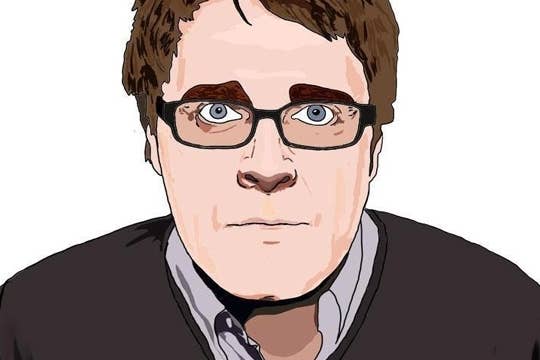GDC Roundup: Day Four
What is a game? How far is too far? The big questions answered as GDC moves into its final day
With GDC in full-swing, the variety in the event's vast session schedule becomes abundantly clear, but issues around appropriate conduct - in the workplace, on the internet, and in the games themselves - remain the most widely discussed topics at this year's show. And for a little light relief, there's always the GDC Rant Session.
In a sessions called Why Is Gone Home A Game?, The Fullbright Company's Steve Gaynor addressed one of the most persistent - and arguably irrelevant - questions posed by the gaming audience. As the medium evolves, matures and diversifies, where do we draw the line? And did Gone Home push too far? "I hope that Gone Home is very much a game," Gaynor said, "that its game-ness is what gives it any meaning at all." (GamesIndustry International)
Back to that "appropriate conduct" thing: Adam Orth, who earned notoriety and a huge number of threats against his personal safety for his infamous "deal with it" comment, addressed the "terrifying" acceptance of antisocial and violent language in online communities in a talk called The Destructive Power of Opinion and Online Community. "As an industry we've become desensitized to this insane behavior because it's overwhelming, ubiquitous and unstoppable," he said. (GamesIndustry International)
Good behaviour is increasingly important to game developers managing huge communities of players, and few developers have an audience quite as large as Riot Games. In a session called Enhancing Sportsmanship in Online Games, Riot's lead designer of social systems Jeffrey Lin offered some sage advice on keeping players in line. "We have seen a lot of success in the last year by making sportsmanship the path of least resistance," Lin said. "If being negative is hard, most humans opt to be good." (Polygon)
That's four entire paragraphs without a single mention of free-to-play, so thank heavens for Sony's panel breaking down the performance of free games on PlayStation. Across all of Sony's free-to-play games, revenue is up 50 per cent year-on-year, with PlayStation 4 currently showing a higher average revenue per user than PlayStation 3. (VentureBeat)
Former Capcom stalwart Keiji Inafune has been very critical of the stagnation in Japanese game development, but in a session called Meanwhile, In Japan he allowed a little light to shine on its troubles. Inafune insisted that there was still a long road ahead, but the ease of independent development will allow the country to remain creative and competitive. "Perhaps we will find the next Japanese video game creator hero in this era," he said. "I feel that there is a small light that will grow into something bigger in the future." (Game Informer)
Elsewhere at the show, another one of the Japanese industry's leading figures was thinking bigger. In an onstage interview, Ken 'Father of the PlayStation' Kutaragi looked ahead to a future where controllers of all kinds are a thing of the past, and games are played in fully simulated virtual worlds. "It hasn't come yet," he said, citing the late-Nineties blockbuster The Matrix as a reference point. "But that is my dream." (AllThingsD)
Last but certainly not least is the annual GDC Rant Session, now in its tenth reliably entertaining year. Highlights included Loot Drop's Greg Costikyan's brutal assessment of the industry's gatekeepers - "Apple doesn't care about games, Google doesn't care about games, Facebook doesn't care about games. Valve cares about games but they care about money more" - and Chris Hecker's steadfast refusal to continue his rant on free-to-play until somebody in the audience gave him a dollar. (Gamasutra)

